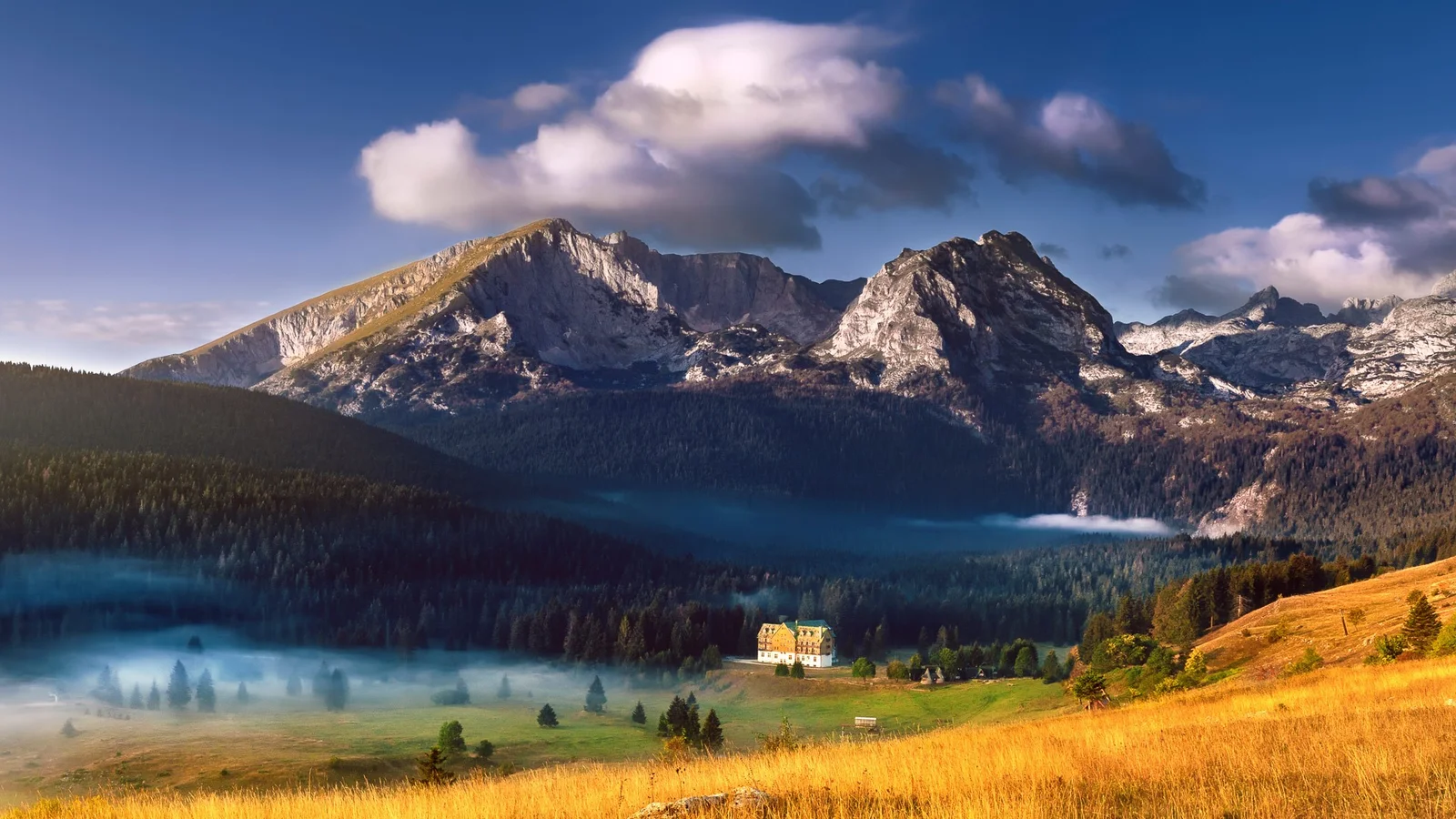The town of Žabljak is located in the northwest of Montenegro, in the heart of the Durmitor region, at an altitude of 1450 meters above sea level and is the highest urban settlement in the Balkans. It is located at the foot of Durmitor and surrounded by 23 mountain peaks of over 2200 meters, with 18 mountain lakes and the Tara river canyon, the deepest in Europe. Today, over 4,500 inhabitants live in Žabljak and its surroundings.

The first Slavic name of this place was "Varezina voda", probably because of the strong source of drinking water, around which the settlement was formed. Later, it got the name "Hanovi" or originally "Anovi", where merchant caravans rested. Today's name Žabljak was officially given in 1870, when the construction of the church, school and captain's home began on the same day. During the days of war and devastation, the old buildings disappeared. Only the Church of St. Transfiguration, erected in honor of the victory over the Turks in 1862. The birth of Žabljak was accompanied by the beginning of several trade and craft shops and taverns. Thus, already in the eighties of the 19th century, Žabljak represented a kind of market, which influenced that it gradually began to assume the role of the administrative center of the Durmitor region.
In the period before World War II, Žabljak represented a town with typical mountain architecture. Already in that period, the unique nature began to attract a large number of tourists from the former Kingdom of Yugoslavia, as well as from abroad. In particular, due to their ties with Montenegro, there were numerous guests from Italy. In addition to the magnificent natural environment, the richness of this area's animal life and the facilities it offers for hunting and fishing, also brings a lot of lovers of this type of sport to Žabljak.
During the Second World War, the town was burned down. All the homes and institutions were burned, and nothing of this small mountain settlement was left, except for broken and burned areas. From then until today, Žabljak was built and built and became the center of winter tourism in Montenegro. Unique and diverse natural resources, in such a small area, recommended Žabljak for the ecological capital of the first ecological country in the world. Deputies of the Parliament of Montenegro, intoxicated by the fresh mountain air, at an extraordinary session, held under a clear sky, made a decision to declare Montenegro the first ecological country and unanimously chose Žabljak as its capital.
